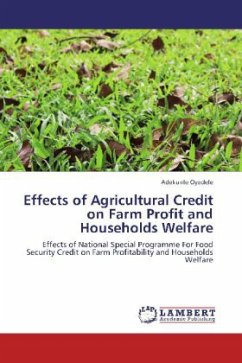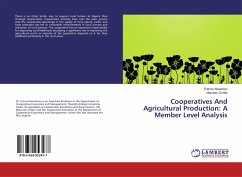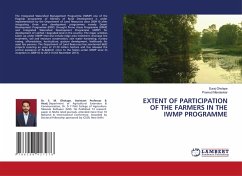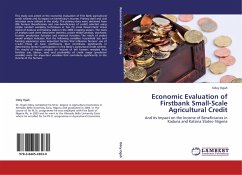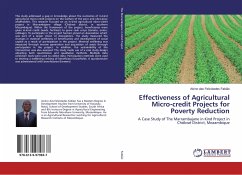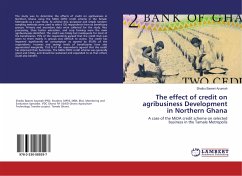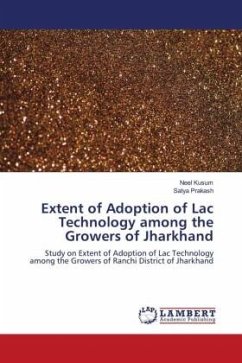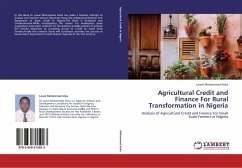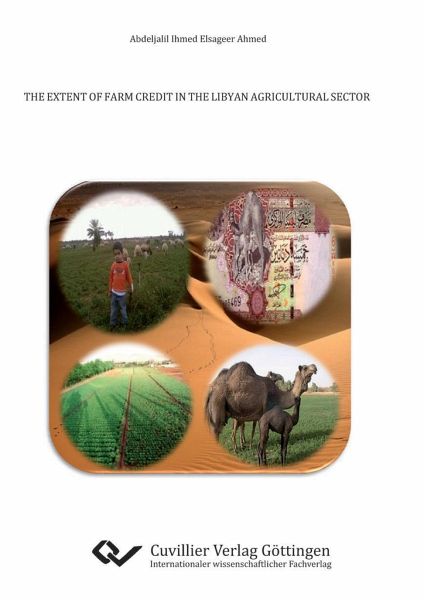
The extent of farm credit in the Libyan agricultural sector

PAYBACK Punkte
0 °P sammeln!
Rural households in Libya are credit constrained, in terms of access and the amount of credit received. Formal banks are the main players in credit market. Despite 44 branches of agricultural banks distributed countrywide, these branches offer a limited number of credit for different purposes every year. The shares of these branches in rural credit market are quite small: agricultural banks provide only 24 % of loans and the other banks, mainly the commercial banks, provide 76 % of loans. However, agricultural credits provided by agricultural banks offer the most favorable terms for those hous...
Rural households in Libya are credit constrained, in terms of access and the amount of credit received. Formal banks are the main players in credit market. Despite 44 branches of agricultural banks distributed countrywide, these branches offer a limited number of credit for different purposes every year. The shares of these branches in rural credit market are quite small: agricultural banks provide only 24 % of loans and the other banks, mainly the commercial banks, provide 76 % of loans. However, agricultural credits provided by agricultural banks offer the most favorable terms for those households that have a positive demand on agricultural credit. Households that have no access to agricultural credits on the other hand face the problem of paying a higher interest rate when applying for credit from non-agricultural banks. This study is an investigation on 'the importance of large credits in Libyan rural-areas, and the main players in the rural-credit market'. This study determines factors affecting access and credit applications in three different locations. In addition, the affect of households, land, and socio-economic characteristics are analyzed using econometric analysis based on primary data collected during field research in the years 2006 and 2007. Empirical results from the data collected from three different regions in Libya confirm that more than half of rural households have no access to credit and around 42% of rural households do not want to participate in loan borrowing or take loans from any financial institutions that charge high interest rate. This is mostly due to religious considerations that prohibit 'unethical' interest rates charged by banks.




